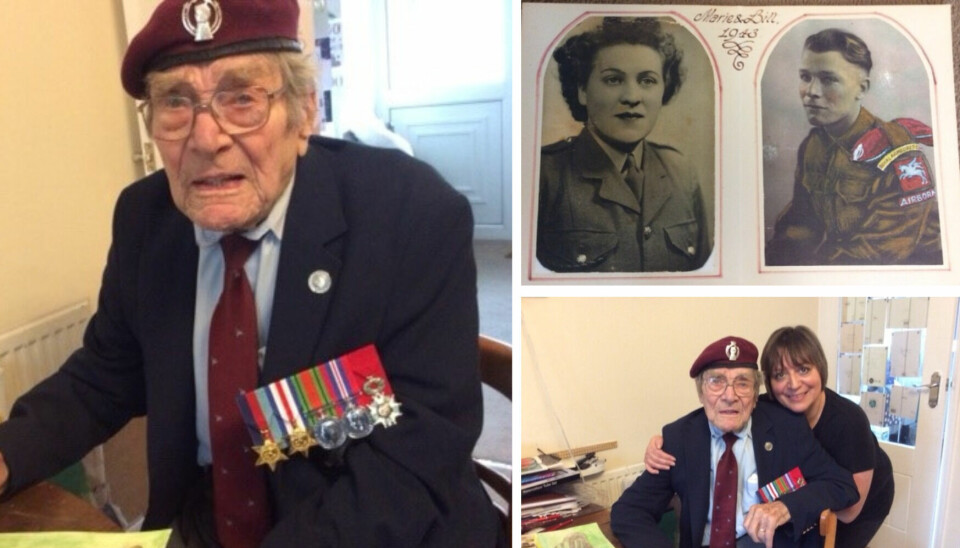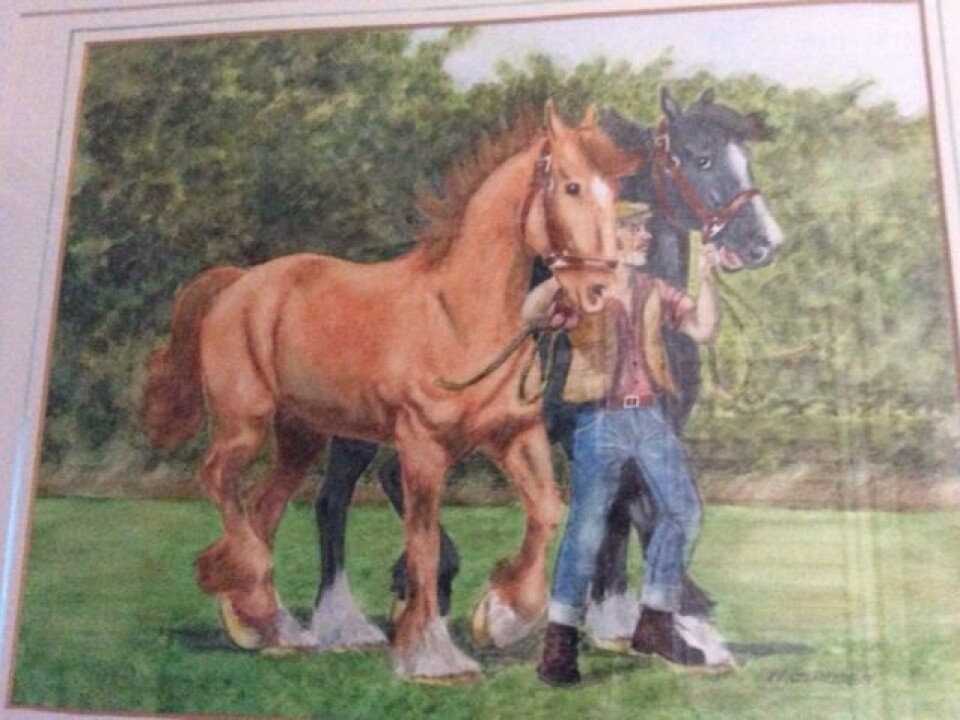More Magazine
No content

Sadly UK veteran Bill Gladden died on April 24. This is one of the last interviews he gave. It was published on our website and in print just before his death.
Eight decades after D-Day, World War Two veteran and centenarian Bill Gladden has vowed to travel back to Normandy to honour his comrades and meet up with French and British brothers in arms.
This year he will be one of only 20 or so UK veterans crossing the Channel to take part in the commemoration ceremonies.
Dignitaries from many countries are expected to be present on this important anniversary of what was the largest seaborne invasion in history.
However, the eyes of the world will be on modest heroes such as Bill who, despite advancing years and inevitable health issues, are determined to make this journey one more time.
“I will be there to honour them all,” he said.
Bill was just 20 years old when, on June 6, 1944, he was flown into France on a Hamilcar Transport glider towed by a Halifax bomber.
The plane took off from Tarrant Rushton in Dorset. The glider was loaded with a Tetrarch tank and half a dozen Matchless motorcycles, plus their young riders.
Bill and his comrades were members of the 6th Airborne Reconnaissance Regiment. Their mission was to join invasion forces under the command of Major John Howard.
This year, having celebrated his 100th birthday on January 13, Bill’s transport to France will be altogether more comfortable.
He will be making the trip in a spacious London black cab provided by the Taxi Charity for Military Veterans, before boarding a cross-Channel ferry.
This will not be the first time he has made a post-War visit to Normandy and his memories of the fateful day itself remain sharp.
“The invasion was originally planned for June 5 and we had been on standby for three weeks,” he said.
“The morning was chilly and damp and we had little idea of what we would be facing.”
Two days before the journey, he wrote an eight-page letter to his mother, which he still treasures.
“I told her that we had, at last, been given permission to write to loved ones and our destination was France,” he recalled.
“I wrote: ‘Don’t worry, Mum. At least, not too much.’”
Once in the glider, he gazed out of a window and tried to stay calm.
He explained what happened next: “When the hawser is released from a heavily-laden glider there is a heck of a thump. The plane jumps and then its nose drops for a few seconds before it regains height.
“The pilot suddenly yelled that we must all stay put. Anyone not seated had to freeze because movement causes imbalance. My pals were secure in their seats but I spread my arms out over the tank and clung on tightly. I stayed there for the rest of the journey, feeling very stiff and stupid.”
On landing in France, the soldiers rode off from the hastily made grass runway along the shell-damaged roads to join their regiment, moving to an orchard just outside the village of Ranville (Calvados).
They were tasked with seizing two road bridges in Normandy across the River Orne and the Caen canal.
Some 12 days after landing, Bill was seriously wounded after being shot in his right leg by a German tank.
“It was June 18, during a fierce battle near the bridge. Three days earlier I had dragged two severely injured colleagues into a barn. Both later died. Then I was struck in my leg by a bullet from a tank, and my ankle was nearly blown off. I was dragged into the same barn by my mates and, three days later, I was taken to a field hospital.”
Thanks to emergency surgery, Bill was fit enough to be transported back to the UK in a tank-landing craft. He was then taken to the Midlands as London was still too dangerous for battle casualties.
I was in 12 different hospitals, and it took three years to repair my ankle sufficiently for me to walk,” he said. “It is still a problem, but I am alive.”
Read also: Thanks! Volunteers found to help D-Day knitted soldiers reach France
Bill was later awarded the Legion of Honour, France’s highest order of merit.
This June, Bill will be accompanied on his journey to France by his niece Kaye Thorpe, 59, and her husband Alan, 48.
The couple have helped him to prepare by sprucing up his medals and uniform, and preparing hearty meals (including his favourite lunchtime ham butties with horseradish sauce!).
His beloved daughter Linda Durrant, 62, also lives nearby with her husband Kenny and has provided additional support.
A talented artist, Bill still paints every day and is an honoured guest at local military events. His Suffolk home is a testament to both his courage and artistic talent, with medals, carvings and paintings on display.
“He enjoys his life,” says Kaye. “Every day is fun with Bill.”
Bill was born on January 13, 1924 in Woolwich, London. “The Royal Artillery kept their horses there and my dad used to take me along to see them,” he recalled.
Early on he discovered an aptitude for drawing and making wood carvings of animals: “It’s something I’ve done all my life, apart from during active duty in World War Two. Nowadays, it keeps me busy, especially drawing friends’ dogs, and sometimes I finish three in a day!”
His first job was in construction but after the war he was employed by Siemens and, later, by a large insurer in Holborn.
He met his wife-to-be, Marie, who also served in the army, early in the war but their relationship faded when postings stopped them seeing each other.
“We both had our own lives, the war was on, and then D-Day came along, so our love was put on hold!"
They met up again in 1951, and married in 1957, living in Welling in Kent.
“When Marie died I was heartbroken, but she had been very poorly with dementia. In 2021, I moved to Suffolk to be with the rest of the family.”

Despite the trauma of his wartime experiences, Bill remains optimistic and good-humoured.
“The secret is to get out and about and not remain stuck indoors,” he said.
“I am lucky because my family and friends help with transport and care. I meet amazing people through reunions and charity events, have a chat and sing wartime songs.
“I went to the local rugby club recently and we raised a lot of money for charity, so you can do good while you have fun. What more do you need?”
Kaye has the last word about Uncle Bill: “ His formidable courage and experiences, in wartime and peace, have given him a lust for life. We are all very proud, and a little in awe, of his bravery and determination.
“He will enjoy meeting up with his friends in France.”